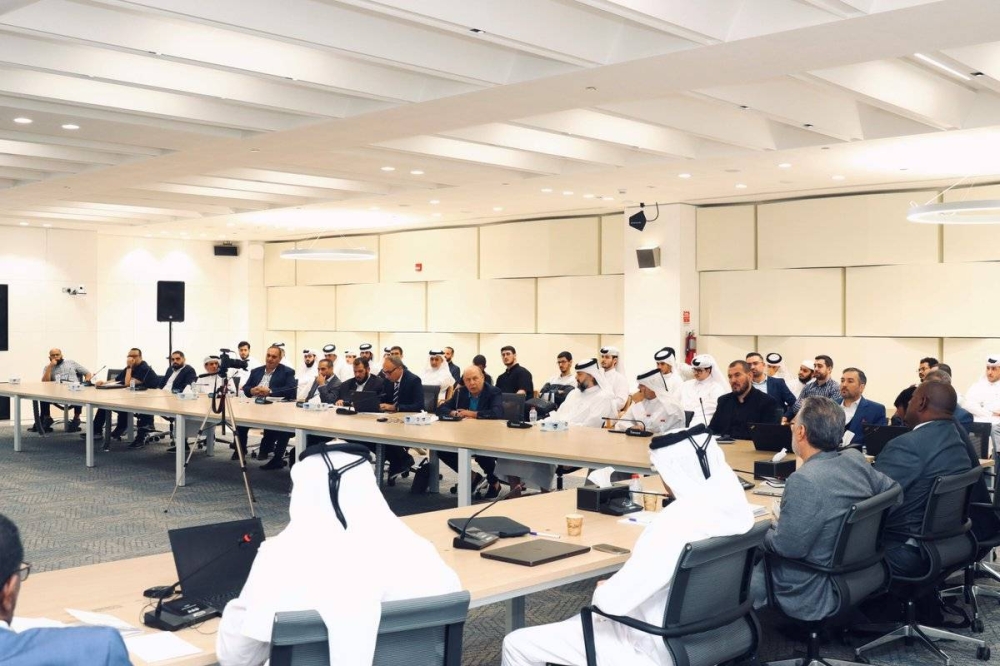The Ibn Khaldon Center for Humanities and Social Studies Center at Qatar University (QU) organised its second annual Tajseer conference under the theme "Reflections of Major Events on the World of Ideas: Interdisciplinary Approaches in Measuring Arab Consciousness."
The conference brought together distinguished academics, researchers and policymakers to explore the impact of key global and regional events on the intellectual and social landscape in the Arab world.
This year's conference focused on interdisciplinary approaches, aiming to assess and explore how Arab consciousness interacts with significant events experienced by Arab youth. It also sought to uncover the effects of these events on the development of ideas in Arab studies and to enhance researchers' ability to connect the real world with intellectual concepts. Additionally, the conference aimed to promote scientific research within the interdisciplinary studies of social sciences and humanities, providing a scholarly platform for researchers from various fields to meet, exchange ideas and to promote knowledge integration.
In his opening remarks, Prof Aiman Erbad, vice president for Research and Graduate Studies at QU, emphasised the importance of the conference, stating, "The conference contributes to raising awareness and fostering intellectual strength, vision, and innovation. It helps in effectively addressing and understanding the current and future impacts of the challenges facing the Arab world today, especially as humanity has witnessed pivotal events that have left deep marks on the intellectual and knowledge structure."
Dr Nayef bin Nahar, director of the Ibn Khaldon Center, also highlighted that the theme of this conference aims to observe the changes in the world of ideas as a result of the rapidly changing events being experienced. This observation allows us to foresee the future and work towards preparing for it.
The conference featured research papers and discussions on a variety of topics, including the impact of significant events such as the Covid-19 pandemic and the conflicts in Ukraine and Gaza on different aspects of life in the Arab world. Professors Ahmed Abouelella, Mansour Benzahi and Abdelkhalek Sidati presented studies on the pandemic's effects on Arab youth in North Africa, particularly in Egypt, Algeria, and Morocco. The researchers focused on how the pandemic reshaped social and intellectual frameworks and daily practices among the youth.
Another set of studies examined the impact of ongoing conflicts on Arab youth's perception of justice and international law. These papers, presented by Professors Ali Mohammed Salem, Walid Oweimer, Mustapha Bekhouche, and Taieb Touili, discussed how recent global conflicts, such as those in Ukraine and Gaza, have influenced Arab youth's point of views on justice within the global political landscape.
Dr Keltouma Aguis spoke at another session, analysing how feminist movements in the Arab world have responded to Israeli attacks on Gaza, particularly in terms of global feminist ideologies and narratives of resistance. She explored how these movements developed their perspectives and activism.
The conference aimed to foster collaboration across disciplines, drawing from various fields such as sociology, political science, and data analysis, to provide fresh insights into the shifting dynamics of Arab thought.
The annual Tajseer conference continues to serve as a platform for open dialogue and intellectual exchange, encouraging researchers to collaborate and explore the main challenges facing contemporary Arab societies. The event also addressed the role of technology in shaping modern consciousness, with a particular focus on the influence of digital platforms on political discourse and social movements in the region.

